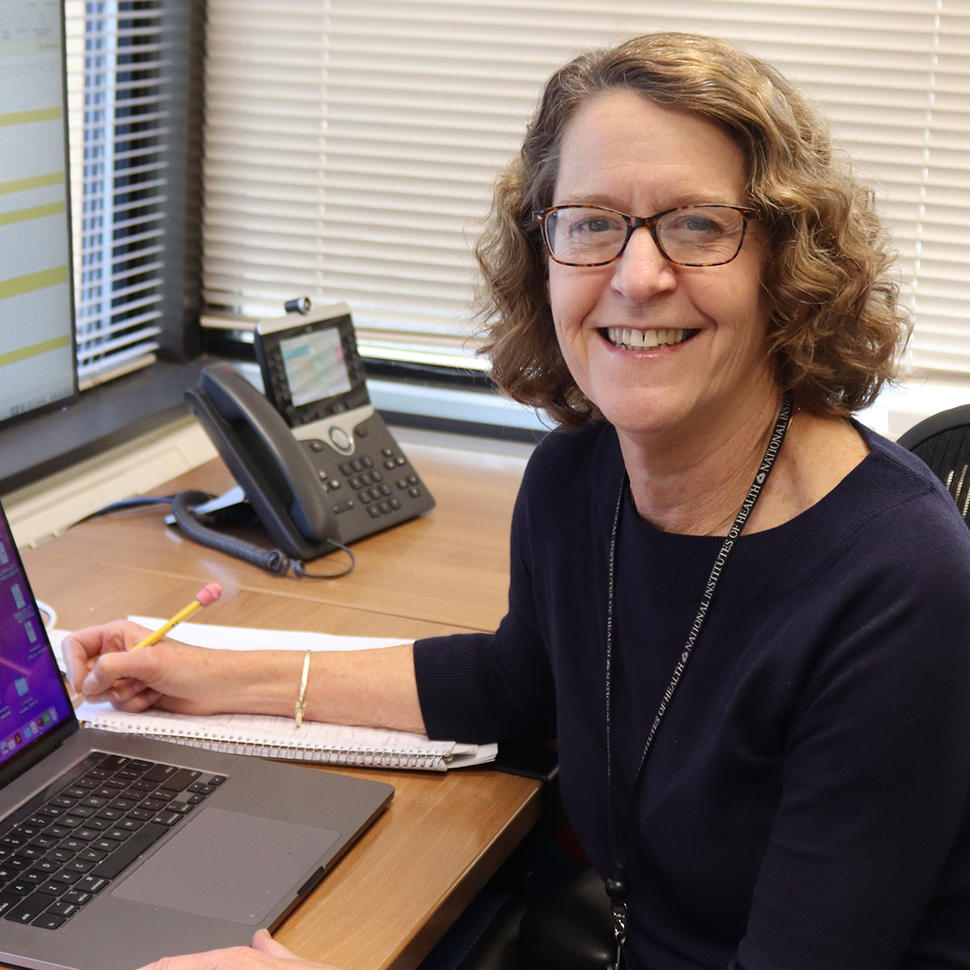Pamela Wolters
- Licensed Psychologist
- Director, Health Psychology and Neurobehavioral Research Program
- Co-Director, Behavioral Health Core, Pediatric Oncology Branch at NCI
Over more than 30 years, Dr. Pam Wolters (she/her) has seen how much cancer and its treatment can affect children psychologically. Attention, memory, coping skills, friendships—these are just some psychological and social aspects impacted, and research is showing how psychology can benefit cancer care and outcomes. An active hiker and swimmer herself, one of Pam’s current studies is helping children who survived brain cancer increase their physical activity to see if it improves cognitive difficulties and emotional well-being. Harnessing data from such studies and children’s experiences throughout their cancer journey could lead to quality-of-life improvements.
Pam notes that identifying a core set of methods and tools to capture psychological data is an important step for data sharing and comparing across studies. “Ultimately, we’re trying to help children before, during, and after treatment get back on their developmental trajectory and be kids again,” said Pam. “That’s a key part of the many things we do.”
